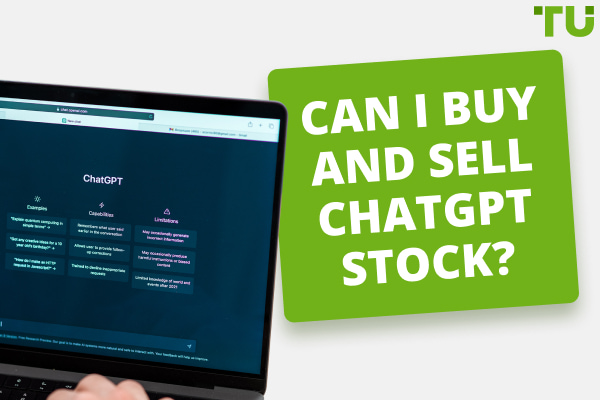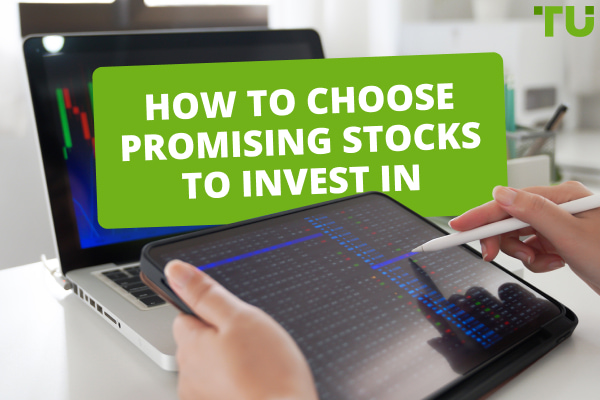The 9 Best Long-Term Investments
The 9 best long-term investments are:
Growth stocks
Stock funds
Real estate
Roth IRA
Alternative investments
Exchange Traded Funds (ETFs)
Bond funds
High-Yield savings accounts
Certificates of Deposit (CDs)
Investing for the long term is a journey towards financial security and prosperity. The world of investments offers a multitude of options, each with its own potential to build wealth over time. In this article, the experts at TU will explore a diverse range of investment opportunities, from the stability of bonds and the potential of stocks to the tangible appeal of real estate and the unique possibilities of alternative investments.
Start trading stocks now with RoboForex!What are long-term investments?
Long-term investments encompass a range of financial instruments specifically held for a period exceeding one year. These investments, prominently featured on a company's balance sheet, include stocks, bonds, real estate, and cash equivalents. What sets long-term investments apart from their short-term counterparts is the extended holding period, which may even last indefinitely. Long-term investing adopts a strategic approach, focusing on potential gains over an extended period, undeterred by short-term market fluctuations. Noteworthy characteristics of these investments include a minimum holding period of one year, qualifying for long-term capital gains tax treatment as per IRS guidelines, the willingness to embrace a higher level of risk for the prospect of superior returns, and the imperative need for a diversified portfolio to mitigate risk.
Best long-term investments which make up wealth in 2024
Growth stocks
Think of growth stocks as the Ferraris of the stock market. They're like high-speed vehicles promising thrilling rides with their potential for substantial growth and impressive investment returns. While many growth stocks are tech companies, they don't have to be limited to this sector. What sets them apart is their tendency to reinvest most of their profits into the business rather than paying dividends, especially when they're in a high-growth phase.
Investing in individual growth stocks requires thorough analysis of the company, which can be time-consuming. Also, due to their price volatility, holding these stocks typically requires a high tolerance for risk or a commitment to keeping them for at least three to five years. Further, growth stocks can be risky because investors often pay a premium for these stocks relative to the company's earnings. During bear markets or economic downturns, they can quickly lose significant value. Their popularity can vanish in an instant. However, over time, growth stocks have proven to be some of the best-performing investments.
Companies like Alphabet and Amazon, among others, started as high-growth businesses. This demonstrates that the potential for reward is virtually limitless if you can identify the right company.
Stock funds
A stock fund is like a collection of stocks bundled together based on a common theme or categorization, such as American stocks or large-cap stocks. These funds are managed by financial institutions, which charge fees for their services. However, these fees are generally quite reasonable.
Stock funds, whether in the form of ETFs (Exchange-Traded Funds) or mutual funds, are an excellent option for investors who don't want to spend the time and effort analyzing individual stocks. They are well-suited for those who wish to harness the potential of stocks without making investing a full-time commitment.
While stock funds are generally less risky and require less work than purchasing individual stocks, they can still experience significant fluctuations. In extreme cases, they might lose as much as 30% or gain 30% within a year. If you choose a narrowly diversified fund, like one concentrated in a specific industry, it will be less resilient in times of economic change. For example, an industry-specific fund may have a high correlation with oil prices, and if oil prices surge, the fund's stocks could suffer.
A stock fund offers the advantage of requiring less effort and attention than owning individual stocks. As stock funds consist of multiple companies, your returns should be more stable. By investing in a diversified fund, you gain exposure to numerous high-growth stocks, reducing risk. A stock fund provides the weighted average return of all the companies within it, making it generally less volatile than a portfolio of individual stocks.
Real estate
Real estate is a classic long-term investment. It requires a significant upfront investment, often comes with high commissions, and typically yields returns over an extended period, not just a few years. One of the appealing aspects of real estate is that you can leverage bank loans to fund your investment and repay them over time.
Real estate is well-suited for those who want to be property owners, giving them the opportunity to be their own bosses. Property ownership also comes with various tax advantages, making it attractive for investors.
When borrowing substantial amounts of money for real estate investment, you're adding extra pressure for the investment to succeed. Even if you purchase property with cash, having a large portion of your wealth tied to a single asset can be risky if something goes wrong. Maintenance costs and mortgage payments need to be covered, even if you don't have tenants, adding financial stress.
Despite the risks, real estate offers the potential for substantial rewards. Well-chosen and managed properties can yield significant returns over time, significantly exceeding the initial investment.
Roth IRA
Roth IRAs are excellent retirement accounts. They allow you to invest after-tax money, enable your investments to grow tax-free for many years, and permit tax-free withdrawals. Furthermore, you can pass these assets to your heirs without them incurring taxes, making Roth IRAs an appealing alternative to traditional IRAs.
Roth IRAs are suitable for anyone earning income and looking to accumulate tax-free retirement assets. Roth IRAs are not investments themselves but rather a tax-advantaged account structure. You can invest in various assets based on your preferences when you have your Roth IRA at one of the top brokerages for the class. For risk-averse individuals seeking guaranteed income without potential losses, an IRA CD within a Roth IRA is a secure choice. You'll earn tax-free interest within the account's regulations. This approach involves very low risk, although inflation remains a consideration.
For those willing to take on more risk, investing in stocks and stock funds within a Roth IRA can provide potentially higher returns while enjoying tax-free growth.
Alternative investments
Alternative investments encompass assets beyond the traditional stock, bond, and cash instruments, including gold, silver, private equity, hedge funds, cryptocurrencies like Bitcoin and Ethereum, and even tangible assets like coins, stamps, alcohol, and art.
Accredited investors often seek alternatives to diversify away from conventional investments and protect their portfolios from stock and bond market downturns.
Access to certain alternative investments can be found through specific online brokers. However, some alternatives are exclusively available through private wealth management firms. Notably, there are ETFs, such as those tracking oil, gold, and private equity, that follow the assets directly or companies associated with them (e.g., gold mining companies). These ETFs provide investment opportunities in alternative assets.
Exchange Traded Funds (ETFs)
Exchange-traded funds (ETFs) have gained immense popularity as an investment choice. Each ETF provides an opportunity to invest in a broad range of securities that span numerous asset classes, offering diversification across hundreds of different financial instruments. Unlike mutual funds, ETFs are traded in a manner similar to stocks and can be acquired for the price of a single share, or even less, making it convenient to diversify your investment portfolio even with limited capital.
Financial experts recommend that long-term investors maintain a diversified portfolio of stock and bond ETFs that align with their specific financial objectives. If a diversified ETF is not readily available, a practical approach is to combine a global stock ETF with an aggregate bond ETF, as this can effectively mitigate risk. Diversification remains a fundamental strategy in navigating unpredictable financial landscapes.
Bond funds
Bond funds, available in the form of mutual funds or bond ETFs (Exchange-Traded Funds), consist of various bonds from different issuers. These funds are typically categorized based on factors like bond type, duration, risk level, and issuer type (corporate, municipal, or federal government).
Bond funds suit investors seeking a diversified bond portfolio without the need to individually analyze and purchase bonds. They are also an excellent choice for those without sufficient funds to buy individual bonds, as bonds can cost around $1,000 each, while bond ETFs can often be purchased for less than $100.
While bonds and bond funds are generally stable, they can still experience fluctuations in response to changes in prevailing interest rates. Different bond issuers carry varying levels of risk. Government issuers, particularly the federal government, are considered safer, while corporate issuers can vary from moderately risky to highly risky.
Bonds are relatively safe investments, especially when part of a diversified bond fund. By holding a variety of bond types from different issuers, a fund lessens the impact of any one bond defaulting. Bond and bond fund returns are typically lower than those of stocks, ranging from 4 to 5 percent annually, and less for government bonds, but they come with lower risk.
High-Yield savings accounts
High-yield savings accounts are an upgraded version of traditional bank savings or checking accounts, offering higher interest rates. Cash management accounts, similar to savings accounts, provide competitive interest rates but are usually offered by brokerage firms and may include features like debit cards and checks.
High-yield savings accounts are perfect for liquidity-focused investing or funds you may need to access occasionally, such as an emergency or vacation fund. These accounts typically have limits on the number of monthly transactions. On the other hand, cash management accounts offer greater flexibility and similar, or sometimes even higher, interest rates.
Certificates of Deposit (CDs)
A Certificate of Deposit (CD) is a federally insured savings account with a fixed interest rate for a specific period. CDs are ideal for money you know you won't need until a set future date, such as a home down payment or a wedding. They come in common term lengths like one, three, and five years. If you're looking to safely grow your money for a specific purpose within a predetermined time frame, CDs are a good choice. However, it's important to note that withdrawing money from a CD early may incur a fee. So, avoid investing money you might need in the near future. Online banks and credit unions typically offer the best CD rates based on term length and minimum deposit requirements.
Pros and cons of long-term investments
👍 Pros
• Less risky
Long-term investments tend to be less vulnerable to market fluctuations and downturns due to their extended holding period. This reduced risk can provide a sense of stability.
• Potential for higher returns
Long-term investments have the potential to yield higher returns compared to short-term options. By patiently weathering market cycles, you can capitalize on market upswings.
• Tax benefits
Long-term capital gains receive more favorable tax treatment than short-term gains, resulting in potential tax savings.
• Compound growth
The longer your money remains invested, the more it benefits from the compounding effect. This means your investment can grow exponentially over time.
• Reduced trading fees
Staying invested for several years can help minimize trading fees, enhancing overall returns while reducing costs.
👎 Cons
• Limited liquidity
Long-term investments may tie up your funds, making it challenging to access them in emergencies or for unexpected expenses.
• Limited flexibility
These investments require a patient approach. If your circumstances change or you require quick access to cash, selling long-term investments can be cumbersome.
• Inflation risk
Holding onto your investment for an extended period may expose you to the eroding effects of inflation, potentially diminishing your overall gains over time.
Tips to keep in mind while investing in long-term assets
Experts suggest keeping the following things in mind when exploring long term investments:
Commit to the long-term
Investing isn't a sprint, it's a marathon. Embrace a long-term perspective, even when markets show short-term fluctuations. Consistent, regular investments are often the key to long-term success.
Know your risk tolerance
Before you start investing, assess your emotional ability to handle market risk. Different people have different risk tolerance levels, and understanding yours is vital in building a comfortable investment portfolio.
Diversify your investments
Don't put all your eggs in one basket. A diverse portfolio should include various asset classes, such as stocks, bonds, and cash, to help cushion the impact of market downturns and provide liquidity when needed.
Keep contributing
Regular contributions to your investment accounts are a winning strategy. Set up automatic deposits, especially if you have an employer-sponsored retirement plan, to ensure consistent growth from both contributions and investment gains.
Beware of fees
High fees can erode your investment earnings. Choose funds or investment products with low expense ratios to maximize your returns over the long run. Tools like the FINRA Fund Analyzer can help you select low-fee options.
Consider a financial advisor
If you have the funds but lack confidence in managing your portfolio, hiring a financial advisor can provide valuable guidance. They'll tailor your investments to your goals and risk tolerance. Alternatively, robo-advisors offer automated, low-cost portfolio management for smaller investors.
Be emotionally balanced
The ability to tolerate risk and hold onto your investments during market downturns is crucial. Avoid the temptation to sell low, as it can prevent you from reaping the benefits of a market rebound.
Know your time horizon
Commit to holding investments for an extended period. The longer your investment horizon, the more you can ride out market fluctuations and take advantage of compounding growth. If you anticipate needing your funds in the short term, consider alternatives like high-yield savings accounts. Your investment journey will become easier when you focus on the long term and stick to your plan.
How to choose the best investments in 2024
Choosing the best investments in 2023 undeniably calls for the consideration of a wide range of factors. Some of them are:
Consider your timeline
Determine your investment horizon. Short-term needs should be met with safe and easily accessible investments, while long-term goals allow for potentially more volatile assets. Tailor your choices to match your time frame.
Assess your risk tolerance
Understand how much risk you're comfortable with. More risk can lead to higher potential returns, but it also brings increased volatility. Diversifying across various investment types can help balance your overall risk.
Review your investment budget
Some investments come with minimum balance requirements, but alternatives and providers exist to suit various budgets. It's crucial to assess how much you can comfortably invest and explore options that align with your financial capacity.
Determine your need for assistance
DIY investors can access a wide range of investments by opening a brokerage account. If you're uncertain about the best investment choices for your situation, consider employing a low-cost robo-advisor. These automated services can construct a tailored investment portfolio based on your criteria. For short-term options, like savings accounts, you can open them at a bank.
Best stock brokers 2024
FAQs
Which investment is best to become rich?
The best investment to accumulate wealth varies based on individual financial goals and risk tolerance. Common options include stocks, real estate, and long-term retirement accounts like a 401(k) or IRA.
How to get rich in 10 years by investing?
Getting rich in 10 years through investing is challenging but possible with a well-thought-out strategy. Key steps include setting clear financial goals, investing consistently, diversifying your portfolio, and seeking professional advice if needed.
What is the best way to invest money for the long term?
The best way to invest money for the long term often involves a diversified portfolio of stocks, bonds, and real estate. Consider your risk tolerance and financial goals when choosing the right mix. It's wise to stay invested and avoid frequent trading.
How can wealth be created in the long term?
Long-term wealth creation is achieved by disciplined saving, investing wisely, and allowing investments to grow over time. Avoid impulsive decisions and focus on your financial goals, whether it's retirement, education, or buying a home. Patience and a long-term perspective are key to building wealth.
Glossary for novice traders
-
1
Broker
A broker is a legal entity or individual that performs as an intermediary when making trades in the financial markets. Private investors cannot trade without a broker, since only brokers can execute trades on the exchanges.
-
2
Trading
Trading involves the act of buying and selling financial assets like stocks, currencies, or commodities with the intention of profiting from market price fluctuations. Traders employ various strategies, analysis techniques, and risk management practices to make informed decisions and optimize their chances of success in the financial markets.
-
3
Investor
An investor is an individual, who invests money in an asset with the expectation that its value would appreciate in the future. The asset can be anything, including a bond, debenture, mutual fund, equity, gold, silver, exchange-traded funds (ETFs), and real-estate property.
-
4
Roth IRA
A Roth IRA (Individual Retirement Account) is a tax-advantaged retirement savings account available in the United States. It allows individuals to contribute after-tax income to the account, and the contributions grow tax-free. When qualified withdrawals are made in retirement, including both contributions and earnings, they are typically tax-free as well.
-
5
Yield
Yield refers to the earnings or income derived from an investment. It mirrors the returns generated by owning assets such as stocks, bonds, or other financial instruments.
Team that worked on the article
Chinmay Soni is a financial analyst with more than 5 years of experience in working with stocks, Forex, derivatives, and other assets. As a founder of a boutique research firm and an active researcher, he covers various industries and fields, providing insights backed by statistical data. He is also an educator in the field of finance and technology.
As an author for Traders Union, he contributes his deep analytical insights on various topics, taking into account various aspects.
Dr. BJ Johnson is a PhD in English Language and an editor with over 15 years of experience. He earned his degree in English Language in the U.S and the UK. In 2020, Dr. Johnson joined the Traders Union team. Since then, he has created over 100 exclusive articles and edited over 300 articles of other authors.
Mirjan Hipolito is a journalist and news editor at Traders Union. She is an expert crypto writer with five years of experience in the financial markets. Her specialties are daily market news, price predictions, and Initial Coin Offerings (ICO).











